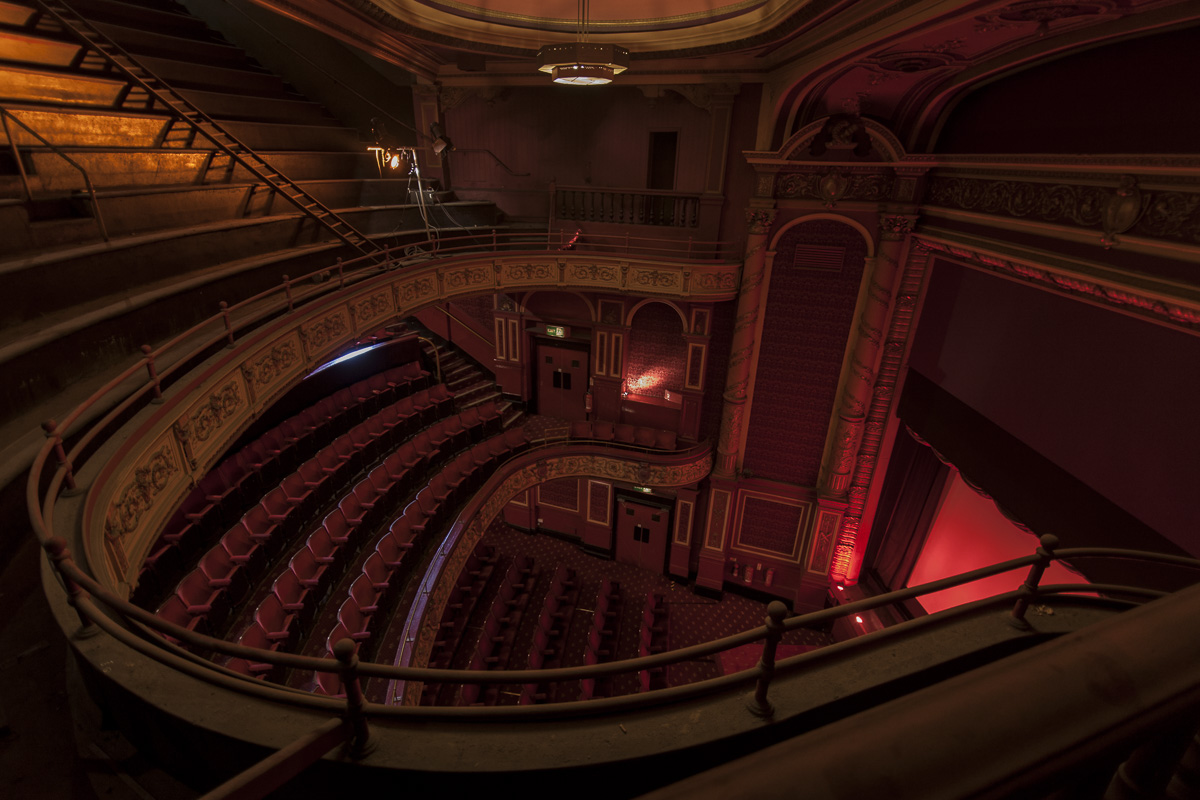
Small and perfectly formed | Why it’s all about London’s slight stages
Jennifer Sharp stands up for tiny theatres on the London fringe

Jennifer Sharp stands up for tiny theatres on the London fringe

When it comes to theatre, I’m a London metropolitan elitist and proud of it. I hate those blockbuster productions with marquee names and sky-high prices. And the audiences! Up from the provinces with non-stop snacking, drinking, checking their phones and taking selfies.
I’ve seen mesmerising performances in tiny scruffy spaces where the cast are so close you can hear them breathe
No, it’s small theatres I love: the ones in semi-derelict buildings, above pubs, even in Vauxhall in a teashop. Without the pressure of meeting a West End rent, they can be brave and experimental, encouraging new writing or overlooked revivals. Large theatres won’t take risks – hence crowd-pleasing musicals, drama’s very own KFC – but when a play succeeds on the fringe and builds up a critical head of steam, it is welcomed into an unsuitably large commercial theatre, dissipating the power of the original. Don’t be tempted.
I sat in the stalls at the National’s Lyttleton for the recent revival of Terence Rattigan’s The Deep Blue Sea. It was packed, despite expensive tickets, but then it did star Helen McCrory (a sleb from TV’s Peaky Blinders and married to Damian Lewis, so catnip to the Home Counties). Alas, the cast played it like an intimate chamber piece with speaking voices inaudible in the vast space. All subtlety was lost. In contrast, another view on Rattigan was in London at the same time: perfectly suited to the small Arcola Theatre on Dalston, Mike Poulton’s new play Kenny Morgan was an acute insight into the playwright’s troubling homosexuality, still illegal in his heyday.
In the past few years I’ve seen mesmerising performances in tiny scruffy spaces where the cast are so close you can hear them breathe. My Eyes Went Dark at the Finborough had a set of just two chairs and high-octane acting from Cal MacAninch as the grief-stricken man who lost his family in a plane crash and Thusitha Jayasundera, morphing effortlessly into the dozen characters who drive the plot.

Tom Mothersdale in Oil at the Almeida
At the Print Room at the Coronet in Notting Hill (picture top) I’ve been enthralled by Conor Lovett’s bravura solo performance in Will Eno’s Title and Deed, mystified by the Samuel Beckett season last summer, and moved by Robert Holman’s heartbreaking A Breakfast of Eels. The Print Room occupies the remains of a grand Victorian building, which opened as a theatre and later became the Coronet cinema, before it was returned to its original use. Let’s hope the long-term restoration plan keeps the graceful decay which makes it so appealing – I love the quirky bar with its sloping floors, brick walls and great cocktails.
Despite lacking most of the usual perks, these charismatic spaces often attract high-profile actors and directors
Despite lacking most of the usual perks, these charismatic spaces often attract high-profile actors and directors. Until it closed at the end of 2016, Found111 was a temporary theatre on Charing Cross Road, on the original site of Central St Martin’s school of art. The building was decrepit, the loos a nightmare and the theatre reached via endless stairs but it had a raw energy that engulfed audience and performers alike. Andrew Scott (Sherlock’s Moriarty) and David Dawson appeared in the claustrophobic but hilarious The Dazzle, and the cast of Barbarians interacted so violently the audience was genuinely afraid. The final production was Sam Shepard’s Fool for Love, which mixed incest, obsessive love and Shepard’s signature theme, the decline of the American West.
Andrew Scott cropped up again this spring at the Almeida in Islington in a modern take on Hamlet, with Juliet Stephenson as a predatorily sexy Queen Gertrude. Sold out within seconds, of course, but other Almeida shows have been more accessible. Oil was a remarkable new work by Ella Hickson spanning 150 years of empire, fossil fuel and parenthood, in which Anne-Marie Duff gave a scorching performance, equally convincing as a downtrodden Cornish peasant in the 1800s and a slick oil executive in 1970s Libya having problems with her daughter. Perched in what felt like scaffolding above the stage, my attention didn’t lapse for a moment.
In the past two years playwright Florian Zeller – who writes in French and is translated by Christopher Hampton – has had huge hits in London, all in tiny fringe theatres. The Tricycle Theatre in Kilburn staged The Father, a devastating look at Alzheimer’s, starring Kenneth Cranham and Claire Skinner, followed by The Mother with the luminous Gina McKee going quietly mad in a comfortable bourgeois marriage. Zeller does humour too: the Menier Chocolate Factory in Southwark staged The Truth, his wonderfully brittle look at marriage, friendship and loyalty. Laugh-out-loud stuff.
Which brings me neatly to my latest crush, The Kid Stays in the Picture, which was on this Spring at the Royal Court. This landmark theatre in Chelsea, still provocative after all these years, stages constantly surprising productions far more than just entertainment. The Kid, however, was an unashamed delight: the bombastic story of Hollywood mogul Robert Evans interpreted for the stage by Simon McBurney and the ever-original company Complicité. Listed as co-producers are Barbara Broccoli and her step-brother Michael Wilson, owners of the James Bond franchise. This is no surprise. The play is such an exuberant celebration of the movie industry, I bet they couldn’t resist it. C